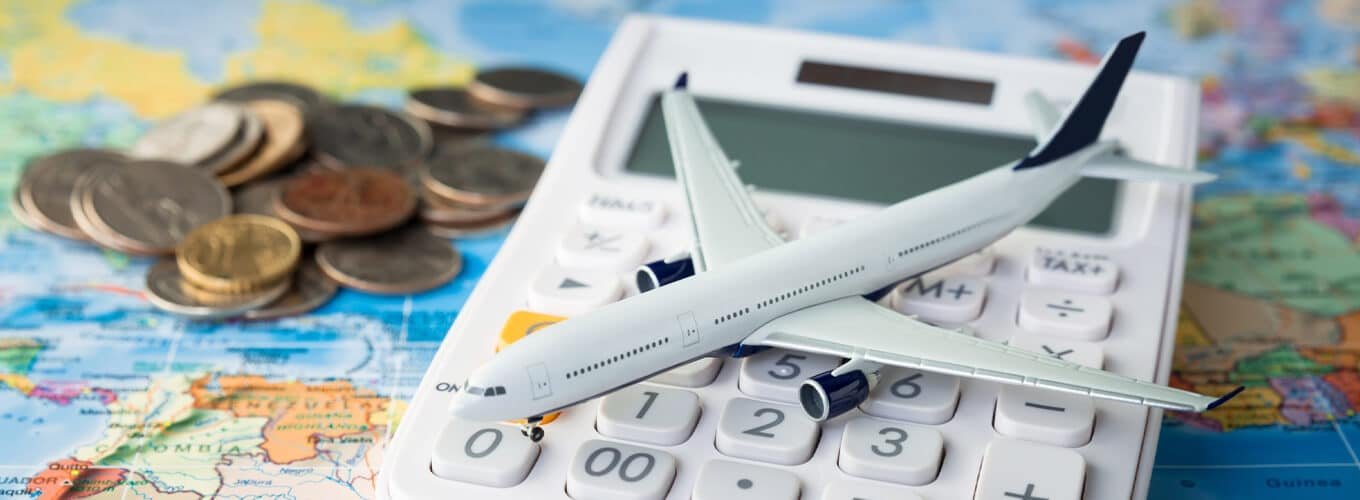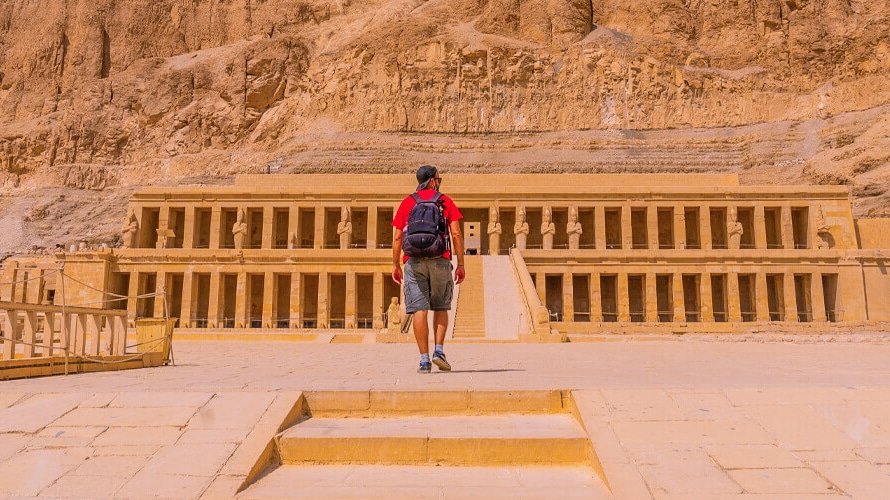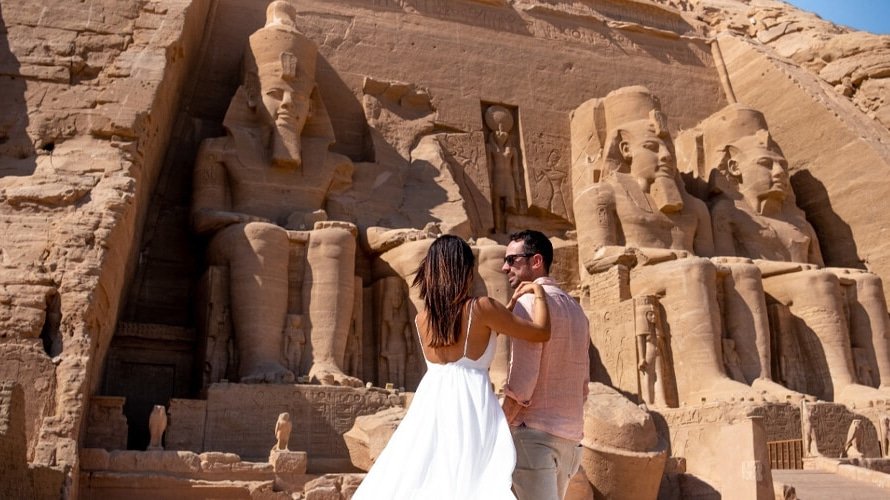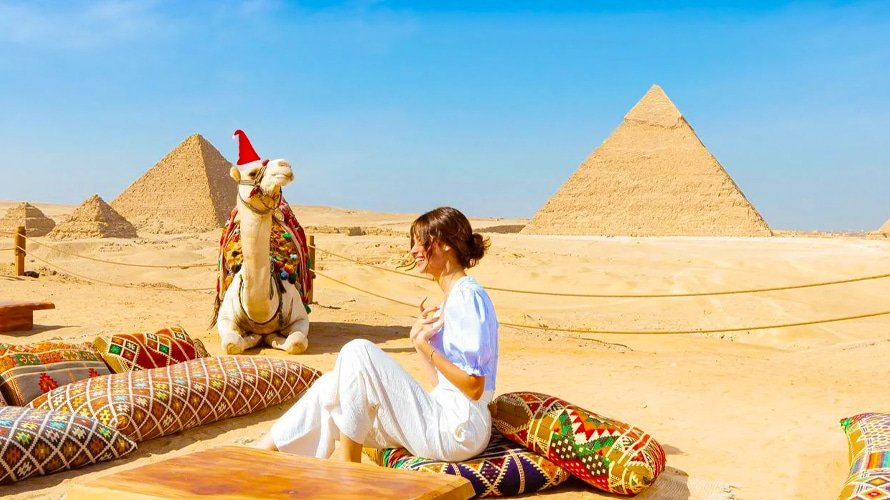Egypt, a land steeped in ancient history and timeless wonders, has a rightful place on many a traveler’s bucket list. However, with dreams of pyramids, pharaohs, and cruising down the Nile come practical questions: How much does it cost to visit Egypt? Let’s not let financial worries overshadow your wanderlust! In this guide, we’ll unveil the costs involved in an Egyptian adventure, providing a clear and honest breakdown to help you make informed decisions. Get ready to discover how to turn your Egypt travel dreams into an affordable reality!
Breaking Down the Costs of a Trip to Egypt
Let’s dissect the essential elements of your Egypt travel budget, starting with two of the biggest expenses: getting there and finding a place to stay.
Flights:
Factors influencing cost: Your flight prices will swing depending on:
- Time of year: Peak seasons (summer, holidays) see higher fares. Opt for shoulder seasons (spring, fall) for potential savings.
- Airline: Low-cost carriers can offer deals, while major airlines often have more flight options.
- Departure City: Larger international hubs usually provide more competitive prices.
Long-tail keyword: “cheap flights to Egypt” This shows search intent
from budget-minded travelers. Here’s how to find them:
- Be flexible with dates: If possible, adjust your travel dates for the best deals.
- Compare booking sites: Use aggregators like Skyscanner, Kayak, or Google Flights.
- Sign up for alerts: Track fares to your desired airports in Egypt.
- Consider indirect flights: Sometimes connecting flights can be cheaper.
Accommodation:
Range of options: Egypt has lodgings for every traveler:
- Budget hostels: Perfect for backpackers, offering dorms and basic facilities at very low prices.
- Mid-range hotels: A comfortable balance of amenities and cost.
- Luxury hotels & resorts: For those seeking pampering and top-notch service.
Average costs: Prices are location-dependent, but here’s a rough guide:
- Budget hostels: $10-$25 per night for a dorm bed.
- Mid-range hotels: $50-$150 per night for a double room.
- Luxury hotels: $150+ per night, with top-end resorts soaring higher.
- Long-tail keywords: “budget hotels in Cairo”, “luxury resorts Egypt”
These target specific niches:
- Cairo tips: Focus on central locations near attractions or metro lines.
- Resort tips: Look for all-inclusive deals or off-season discounts.

Transportation:
Getting around Egypt can be both affordable and an adventure in itself! Here’s a look at your options:
- Public Transport: Egypt boasts a network of buses and trains that are incredibly budget-friendly.
- Buses: Great within cities and for shorter inter-city trips.
- Trains: Comfortable for longer journeys (Cairo to Luxor, for example) with varying classes to suit your budget.
Taxis/Ride-Hailing: Convenient, but remember these tips:
- Negotiate fares: Agree on a price before getting into taxis.
- Ride-hailing apps: Uber and Careem operate in Egypt, providing transparent pricing.
Nile Cruises: “Cost of Nile Cruise Egypt”
- Package tours: Most common, bundling accommodation, meals, and excursions. Luxury cruises cost significantly more.
- Independent arrangements: Possible, but requires more organization (booking boat, hotels, etc.). Can potentially be cheaper if done strategically.
Food:
Egyptian cuisine is a delicious and budget-friendly part of the experience!
Local vs. Tourist-Oriented Restaurants
- Local Eats: Authentic flavors and unbeatable prices. Seek out smaller places off the main tourist drag.
- Tourist Restaurants: Often offer more familiar Western options but at higher prices.
Average Meal Costs:
- Street food: Incredibly cheap and tasty! Think falafel, koshari, etc., at $1-$3 per meal.
- Local restaurants: Hearty sit-down meals for around $5-$10 per person.
- Tourist restaurants: Expect $15+ per person, especially with drinks.
Long-tail keyword: “street food in Egypt” Here’s what to try:
Don’t miss: Koshari (rice, lentils, pasta, tomato sauce), ful medames (fava bean stew), grilled meats, stuffed vegetables.
Activities and Entrance Fees
Egypt is a treasure trove of historical sites and unique experiences. Here’s how to factor them into your budget:
Must-see sites:
- Pyramids of Giza: Entry to the complex plus additional fees for entering the pyramids themselves.
- Egyptian Museum, Cairo: Home to priceless Tutankhamun treasures and more.
- Temples (Luxor, Karnak, Abu Simbel): Entry fees vary per site. Consider a multi-site pass for savings if you plan on visiting several.

Optional Experiences:
- Hot Air Balloon, Luxor: Magical sunrise views come at a premium ($100+).
- Desert Safari: Prices depend on duration and inclusions (camel rides, Bedouin dinner, etc.). Expect $50+ for a basic excursion.
- Felucca Sailing on the Nile: A relaxing way to see the sights, negotiate the cost beforehand.
Visas and Other Expenses
Visa Costs: “Do I need a visa for Egypt?”
Most nationalities require a visa, either purchased on arrival or pre-arranged online. Costs typically range from $25-$60.
Tipping Customs:
- Tipping, known as “baksheesh,” is customary in Egypt. Small tips for service workers, guides, and drivers are appreciated.
- Restaurants often add a service charge to the bill, but an additional small tip is still welcomed.
Souvenirs and Shopping
- Haggling is the norm in markets! Start negotiations at a fraction of the initial price.
- Popular souvenirs include spices, papyrus art, jewelry, and perfumes.
Important Note: Costs are always subject to change. Always double-check up-to-date prices on official websites or with reputable tour operators before your trip.
Sample Egypt Travel Budgets
Here are some rough itinerary sketches to demonstrate budget variations. Remember, these are customizable based on your trip duration and interests.
Budget Traveler:
- Accommodation: Hostels in dorm rooms, basic guesthouses.
- Transport: Public buses and trains, occasional short taxis.
- Food: Street eats, local restaurants, cooking your own meals occasionally.
- Activities: Major sites prioritizing outdoor exploration, free museums/walking tours.
- Example Cost: $50-$75 per day
Mid-Range Traveler:
- Accommodation: Mix of 2-3 star hotels and hostels in choice locations.
- Transport: Trains for longer distances, taxis negotiated smartly. Perhaps a short internal flight.
- Food: Mostly local restaurants, occasional splurge on a tourist-oriented spot.
- Activities: Mix of “must-see” sites with entrance fees, a guided day trip or two.
- Example Cost: $75-$150 per day
Luxury Traveler:
- Accommodation: 4-5 star hotels, Nile cruise for a portion of the trip.
- Transport: Private transfers, guided tours, possibility of internal flights.
- Food: High-end restaurants, meals included on a cruise, room service.
- Activities: All major sites with private guides, unique experiences (hot air balloon, luxury desert camp, etc.).
- Example Cost: $200+ per day
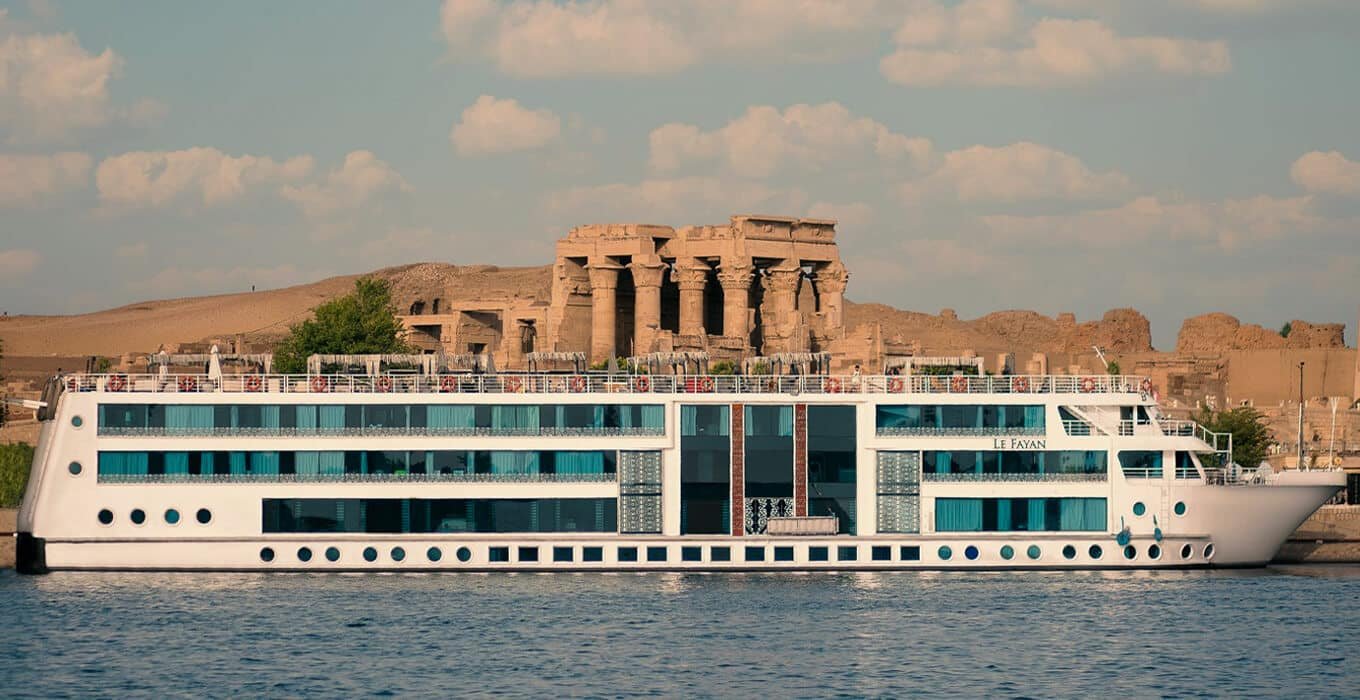
Tips for Saving Money on Your Egypt Trip
- Travel during the shoulder season: “Egypt travel deals” Spring (April-May) and fall (Sept-Oct) offer pleasant weather, fewer crowds, and better prices.
- Embrace local food: It’s authentic, delicious, and incredibly wallet-friendly. Avoid tourist traps with inflated prices.
- Learn basic Arabic for bargaining: Even a few phrases like “shukran” (thank you) and “ktir awi” (too expensive) go a long way in markets!
Consider a tour package: Sometimes, pre-booked tours can offer better value than arranging everything independently – especially for Nile cruises or multi-day desert trips. Compare carefully!
FAQs About Cost of Traveling to Egypt
Is Egypt an expensive country to visit?
Egypt has the wonderful advantage of being surprisingly affordable. While there are certainly luxury options, it’s easy to explore Egypt on a limited budget. By choosing local guesthouses, street food, and using public transport, even the most cost-conscious travelers can have an incredible experience.
Can I travel to Egypt on a tight budget?
Absolutely! Budget travel in Egypt is entirely possible. Stick to hostels, savor the delicious and cheap street food, take advantage of local buses and trains, and focus on the many free outdoor attractions. You can easily experience the magic of Egypt without breaking the bank.
Do I need to tip in Egypt?
Tipping, often called “baksheesh,” is a common practice in Egypt. While not strictly mandatory, small tips for servers, drivers, and tour guides are greatly appreciated. A few Egyptian pounds for good service goes a long way. However, don’t feel pressured to overtip.
What is the best time of year to visit Egypt to save money?
For the best deals, opt for the shoulder seasons (spring or fall). You’ll enjoy pleasant weather, smaller crowds, and generally lower prices on accommodation and flights compared to peak season.
How much spending money should I bring to Egypt?
Here’s a general guideline for how much extra spending money to bring, beyond the major costs of flights and accommodation:
- Budget traveler: $20-$30 per day should cover basic meals, transport within cities, some activity fees, and souvenirs.
- Mid-range traveler: $40-$60 per day allows for more comfort, dining at nicer local restaurants, and a few guided tours or paid activities.
Important Note: Always exchange some money into Egyptian Pounds for taxis, small vendors, and tipping!
Conclusion
Whether you dream of exploring Egypt on a shoestring budget or seeking well-balanced comfort, this fascinating country has something to offer. The key to minimizing costs lies in thoughtful planning and making informed decisions. By embracing local experiences, utilizing shoulder-season deals, and making savvy choices along the way, you can turn those bucket-list pyramids and temples into a reality.
Don’t let budget worries overshadow your adventurous spirit! Let Egypt, with its ancient allure and surprisingly affordable options, prove that unforgettable travel doesn’t have to cost a fortune. So, start planning – your Egyptian odyssey awaits!
Related Article to Read:

